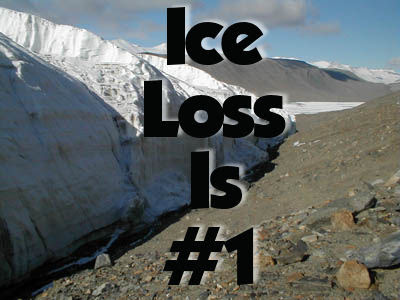20 September 2010
The Race to the Poles
This past Thursday, Canada and Russia tried to work out claims over the Arctic as each country looked to its energy riches and new shipping routes made increasingly possible by the melting Polar ice.
Along with Canada and Russia, Norway, Denmark, and the United States are all at odds over how to divide up the Arctic seabed. Why? According to the US Geological Survey, the Arctic is thought to hold 90 billion barrels of oil and 30 percent of the world's untapped gas resources.
Every winter, the Arctic ice shelf returns less and less making the seabed more accessible.
In an effort to solidify the idea that the North Pole has been claimed since 2007 (Here: Quest for the Poles), Russia will boost its research efforts next month by launching a drifting research station. Russia must have scientific data of such energy sources, prove that the people of Russia need said energy and submit them to the United Nations in 2013 (matching the claim made by Canada expected for that year.)
The two Arctic nations claim the Lomonosov Ridge, a mountain chain running underneath the Arctic, as an extension of their continental shelf. AP
23 March 2009
Canada Is The Only Player Left In Its Game
 The whole scenario is grim: an adorable, white as the snow around it, baby Harp Seal pup with bulging black eyes that seem to elude innocence {check out the pic I have below} is beaten until its tiny head cracks open all over the snow it once lived on. Canada my not be a problematic country to its' neighbors but it does like to participate in probably the worst human to animal act in the history of the planet.
The whole scenario is grim: an adorable, white as the snow around it, baby Harp Seal pup with bulging black eyes that seem to elude innocence {check out the pic I have below} is beaten until its tiny head cracks open all over the snow it once lived on. Canada my not be a problematic country to its' neighbors but it does like to participate in probably the worst human to animal act in the history of the planet.This year many countries have decided to make this market a thing of their past. The European Parliament committee has endorsed a bill to ban the import of seal products and Russia has put out an age restriction on the seals making it illegal to hunt a 'pup' under the age of one. But Canada has taken the initiative to increase the overall number of pups seals allowed to be killed claiming that the Harp Seal is over populated in their country.
There is hope in the air for the Harp Seal, "It's clear to me that change is in the air. This is my 11th year documenting the commercial seal hunt and I feel fairly confident that this may well be the last year that his slaughter goes on," Rebecca Aldworth, director of Humane Society International Canada, said. "There is a growing perception that this is a dying industry. Now is the time for the federal government to take action to gracefully end this hunt by compensating the fisherman involved and allow Canada to stop a controversy that has haunted us for more than four decades." Read More: MSNBC.
03 January 2008
Canada's Concern: And They Should Know, They Live There
 A record loss of Artic ice made Canada's #1 weather concern for 2007.
A record loss of Artic ice made Canada's #1 weather concern for 2007.
Every year Environment Canada publishes the top ten weather or climate occurrences for that year and for 2007, "the dramatic disappearance of Arctic sea ice, reported in September, was so shocking that it quickly became our number one weather story," they said in a statement.
Satellite images of glacier activity in September revealed that the ice had melted four million square kilometers more then the previous low, a 23% decrease.
"Canadians might remember 2007 as the year that climate change began biting deep and hard on the home front," Canada's environment ministry said.
The most noticeable difference took place at Canada's Northwest Passage. The artic route that connects the Atlantic and Pacific was passable for almost five weeks into August and September, a unusual happening.
"Scientists are now even more convinced that the Arctic climate system is heading toward a more ice-free state during the summer months, and that human-caused global warming is playing a significant role." Source.
Tags: Canada, Environment Canada, Glaciers
31 October 2007
Evidence of Global Warming That The Trees Remember
 Exposed tree stumps, that were once frozen in time under the glaciers of Canada's Garibaldi Provincial Park, are giving geologists new insight into the accelerated rates to which they are melting.
Exposed tree stumps, that were once frozen in time under the glaciers of Canada's Garibaldi Provincial Park, are giving geologists new insight into the accelerated rates to which they are melting."The stumps were in very good condition sometimes with bark preserved," said Geologist Johannes Koch from Simon Fraser University in Burnaby, British Columbia.
To find out how long the tree stumps have been living in ice, Koch radiocarbon-dated the wood. He discovered that the trees had been buried under tens to hundreds meters if ice for 7000 years! This realization shows that this is the first time these trees have been exposed in that amount of time. There have been many advances and retreats of the glaciers over the past 7000 yrs but none so far as expose these trees.
"It seems like an unprecedented change in a short amount of time," Koch said. "From this work and many other studies looking at forcings of the climate system, one has to turn away from natural ones alone to explain this dramatic change of the past 150 years." Source.
Tags: Canada, Glaciers, Global Warming









